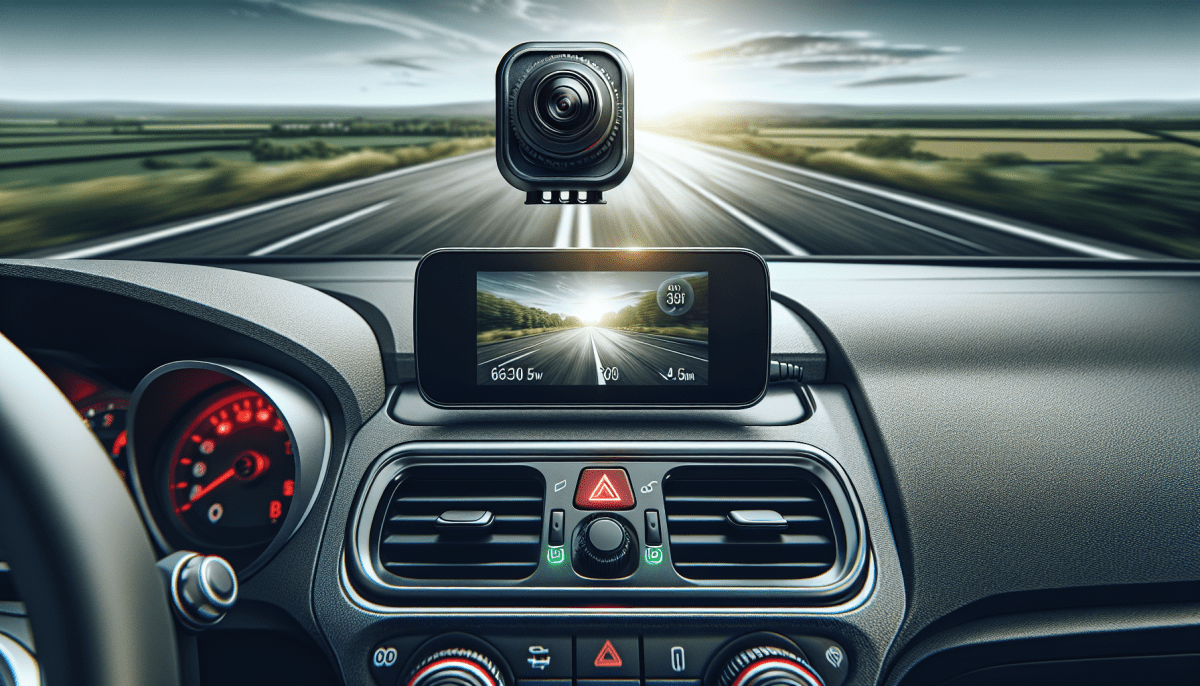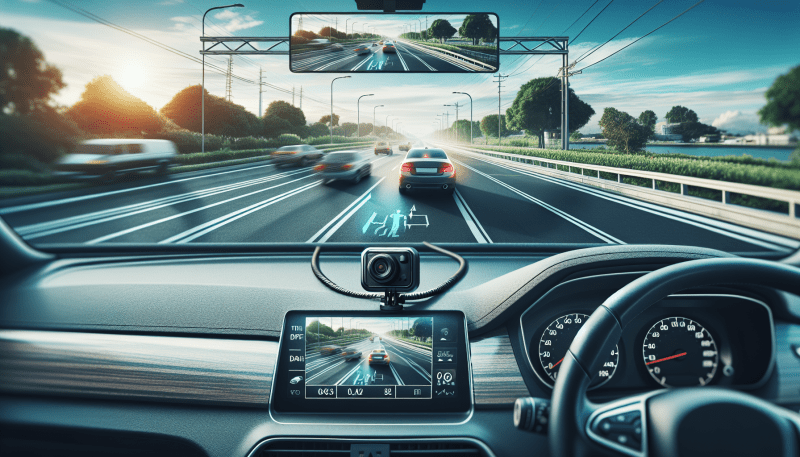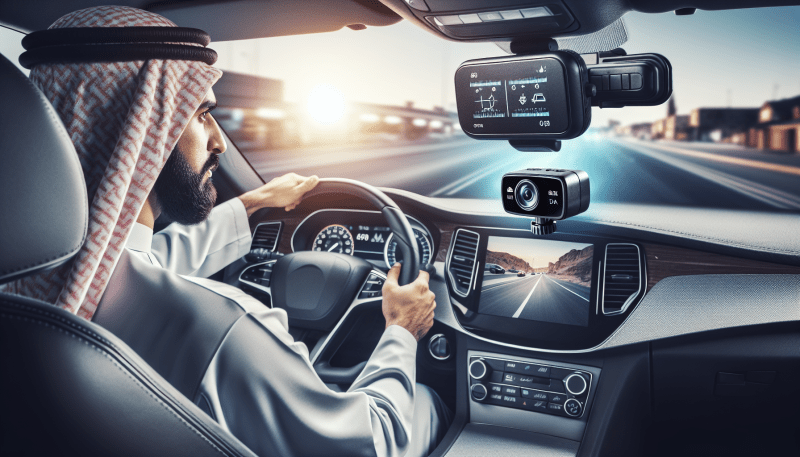Dashboard cameras, or dash cams, have become increasingly popular in recent years as a tool for enhancing safety on the road. These small video recording devices, typically mounted on the dashboard or windshield of a vehicle, capture a continuous feed of the road and surroundings. One of the most significant advantages of dash cams is their ability to capture unexpected incidents and accidents, providing crucial evidence that can help determine liability and ensure justice.
The power of dashboard cameras lies in their ability to provide an unbiased and factual account of events. In the case of accidents, dash cams can offer key information, such as the speed of vehicles involved, the behavior of drivers, and the sequence of events leading up to the incident. This video evidence can be invaluable in determining fault and preventing fraudulent claims. Insurance companies and law enforcement agencies often rely on dash cam footage to understand what really happened in a collision or traffic violation, ultimately facilitating a fair resolution for all parties involved.
Moreover, the benefits of dashboard cameras extend beyond accident-related incidents. They can capture unexpected events, such as meteor sightings, natural disasters, or unexpected roadside encounters, which can be shared as viral videos or serve as valuable material for scientific research. Dash cam footage has also played a vital role in identifying and reporting dangerous drivers, reckless behavior, or criminal acts. By recording constantly while driving, dash cams contribute to creating a safer and more accountable driving culture.
Enhancing Road Safety: How Dashboard Cameras Make a Difference
Dashboard cameras, also known as dash cams, have become increasingly popular in recent years as a crucial tool for enhancing road safety. These small cameras, typically mounted on the windshield or dashboard of a vehicle, continuously record the road ahead, capturing high-quality video footage of a driver's journey. The use of dashboard cameras has numerous advantages in promoting safety and providing crucial evidence in the event of accidents or disputes.
One of the key benefits of dashboard cameras is their ability to capture important details in real-time. In the case of accidents or road incidents, dash cams provide an objective account of the events leading up to the incident, offering a reliable source of evidence. This footage can be invaluable for insurance claims, police investigations, or even personal disputes. The presence of a dash cam can also deter reckless driving or fraudulent behavior, as the knowledge that their actions are being recorded may dissuade individuals from engaging in dangerous activities on the road.
Dashboard cameras also allow drivers to review their own driving habits and improve upon them. By analyzing the recorded footage, drivers can identify any errors or bad habits they may have, such as distracted driving, aggressive overtaking, or failing to use turn signals. This self-awareness facilitated by dash cams promotes safer driving practices and can ultimately help reduce the number of accidents on the road. Some advanced dash cams even come with features like lane-departure warnings or collision detection systems which actively contribute to preventing accidents before they occur.
In addition to promoting individual safety, the use of dashboard cameras contributes to the broader goal of improving road safety as a whole. The recorded footage collected by dash cams can be used to analyze traffic patterns, identify problematic areas prone to accidents, or even assess the effectiveness of safety measures implemented by local authorities. This data-driven approach can assist in formulating targeted strategies to enhance road infrastructure, educate drivers about specific risks, or develop new policies aimed at reducing accidents and fatalities on the roads.
Unveiling the Truth: The Role of Dashboard Cameras in Accidents
In recent years, dashboard cameras have gained significant popularity among drivers as a means to enhance safety and provide crucial evidence in accidents. These small devices, often mounted on the interiors of vehicles, continuously record the road ahead, capturing valuable footage that can shed light on the circumstances surrounding an accident. The utilization of dashboard cameras has proven to be a game-changer in resolving disputes, providing accurate documentation, and even helping prevent accidents in the first place.
Perhaps one of the most significant advantages of dashboard cameras is their ability to provide objective evidence in the aftermath of an accident. With the footage recorded by these devices, it becomes easier to determine liability and responsibility. Video evidence can help establish who was at fault, providing crucial information for insurance claims, legal proceedings, and police investigations. This means that drivers with dashboard cameras can often avoid lengthy and complex disputes, as their recorded evidence can speak for itself.
Furthermore, dashboard cameras can potentially deter unsafe driving behaviors, leading to a reduction in accidents. Knowing that their actions are being recorded can discourage drivers from engaging in reckless driving practices, such as speeding, tailgating, or running red lights. It promotes a sense of accountability and responsibility behind the wheel. Additionally, studies have shown that drivers who have installed dashboard cameras tend to become more cautious and attentive while driving, as they know they are being monitored.
A Clear Perspective: Why Dashboard Cameras Are an Essential Tool
Dashboard cameras, also known as dash cams, have emerged as an essential tool in enhancing safety on the roads. These small cameras are typically mounted on the dashboard or windshield of a vehicle, recording videos of the road ahead and the surrounding environment. While dashboard cameras were initially popular among law enforcement officers and professional drivers, they have now become increasingly popular among private vehicle owners. This article discusses why dashboard cameras are considered valuable in enhancing safety and providing a clear perspective of incidents on the road.
One significant advantage of dashboard cameras is their ability to capture evidence in case of accidents or disputes. With a dash cam footage, drivers can provide a clear account of events leading up to an accident and potentially avoid fraudulent insurance claims. This evidence is particularly valuable when it comes to hit-and-run incidents or when there are conflicting accounts of the accident. The presence of a dash cam can also act as a deterrent, as drivers are aware that their actions are being recorded, encouraging safer driving behavior on the road.
In addition to capturing evidence, dashboard cameras can also be used as a learning tool for drivers. By reviewing their driving habits and actions, drivers can identify areas of improvement, such as distraction or aggressive driving, and take necessary measures to become safer on the road. The footage can also help identify blind spots or areas of poor visibility that may have contributed to a near-miss or accident. This self-awareness and ability to learn from mistakes can significantly contribute to a safer driving experience for all road users.



